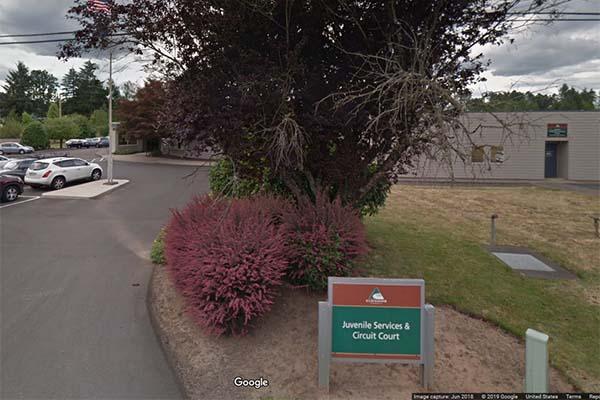Post Police Contact
After police respond to a situation where a youth may have committed a crime they will do one of the following:
- Release the youth to their parent or guardian.
- Take the youth into custody and transport them to the Juvenile Intake & Assessment Center (JIAC).
- Take the youth to a detention center (Donald E. Long Detention Center).
- Cite the youth to appear in court.
What next?
After your child is taken into custody or has contact with the police, the police will write a report and send it to the juvenile department.
The juvenile department will then assign your child to a juvenile counselor or diversion panel coordinator who will meet with you to explain what is happening with your child's involvement with the juvenile justice system. This person will also help you understand all of your options.
Juvenile Justice System
The juvenile justice system is the system in charge of dealing with juvenile crime. It is different from the adult criminal system. The juvenile system concentrates on holding youth accountable for their actions, keeping the public safe, and repairing harm in the community. Below is a chart that may help you understand words that are used in the juvenile justice system that are similar to adult criminal words.
Process Timeline
If your child is taken into custody, the juvenile department will contact you immediately. If the police write a report that says that your child may have committed a crime, the juvenile department typically will contact you within 2 to 3 weeks of receiving the report. The juvenile department works hard to handle cases in a timely manner.
Right to an Attorney
You have a right to have an attorney for you or your child, at your own expense, during any point in the process. If the case goes to court, your child may qualify for a court appointed attorney.
What Is My Role As the Parent or Guardian of the Youth?
The parent or guardian plays a very important role in the juvenile justice process. Unlike adults, youth are usually dependent on family members who have a large impact on their choices. The partnership between the parent/guardian and the juvenile counselor can have a big impact on a youth's success. The staff at the juvenile department rely on the parent/guardian to help the youth through the justice process.
Family Support
Parent Empowerment Series
Emphasis is placed on empowering parents to reclaim and retain their power as authority figures in their home. To register, call 877-840-0052.
Expunction
Under most circumstances a juvenile's record can be destroyed at some point. The process of getting a juvenile record and associated police reports destroyed is called an expungement. Learn more about the process.
Expunction Request Application
Complete this application to request expunction of your juvenile record.
Glossary of Terms
Adjudication: A court hearing where a Judge finds a youth responsible for committing a crime. The decision is made either because the youth admits to a charge, or is found responsible by a Judge through a court trial.
Ballot Measure 11: A person 15 years or older found guilty of a specific crime that requires the court to impose a minimum mandatory sentence and the person will be processed in the adult justice system.
Custody: When a youth is detained by a law enforcement agency because an officer has probable cause to believe a felony or misdemeanor crime has been committed, a statute has been violated, or the youth has a warrant out for their arrest.
Detention: Temporary and safe custody, in a secure setting, of juveniles (under age 18) who require a restricted environment for their own or the community's protection while pending legal action.
District attorney: An attorney, who is employed by the county, and who is responsible for prosecuting people who are charged with a crime.
Felony: The most serious levels of crimes.
Intake: The point when a Juvenile Counselor meets with a youth and family to gather information in order to assist in the decision making process.
Juvenile counselor: A Juvenile Counselor is the same as a Juvenile Probation Officer. This person will determine how the case should be handled based on reviewing police reports, interviewing the youth and family as well as other resources. The Juvenile Counselor also supervises the conditions and terms of the youth's status with the Juvenile Department and makes on-going decisions regarding treatment or service needs.
Misdemeanor: Levels of crimes that are less serious than felonies.
Preliminary hearing: First court hearing in a case to give the juvenile formal notice of the charges and of his/her rights, to determine whether the juvenile has an attorney and if necessary, appoint one.
Probation: Court ordered conditions and expectations of behavior resulting from a youth being found responsible for violating the law.
Referral: A police report is sent to the Clackamas County Juvenile Department through the reporting law enforcement agency.
Status offence: An offense that is only considered an offense because a person is a minor (ie. smoking, or staying out past curfew)
If you have additional questions or would like to speak with someone, please do not hesitate to contact us.
 Translate
Translate






